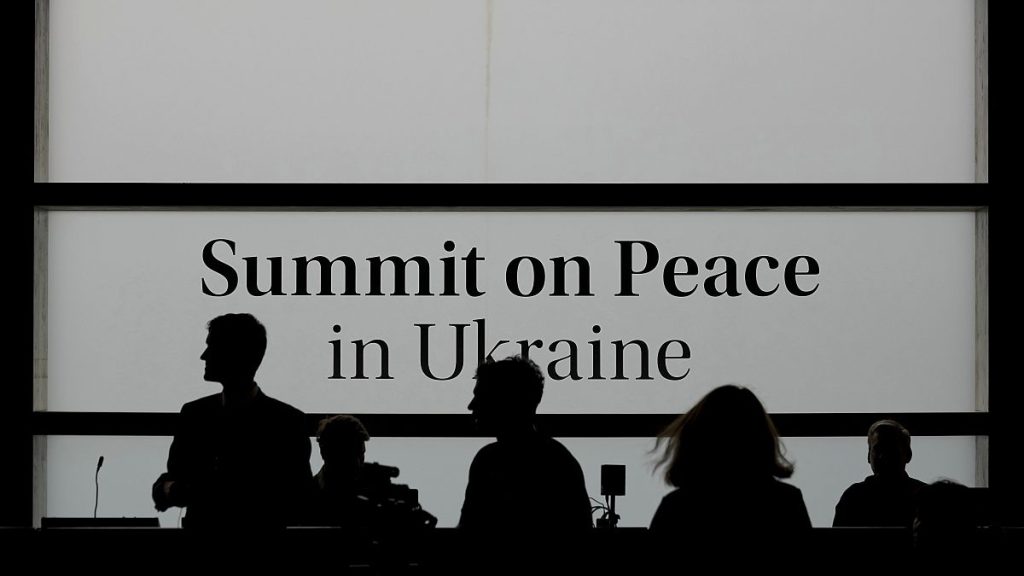The two-day international peace summit on Ukraine took place at the Bürgenstock resort in central Switzerland, with over 90 countries and representatives of international bodies participating. The summit aimed to address various issues such as nuclear safety, food security, and humanitarian assistance. One of the main concerns discussed was nuclear safety, particularly at the Zaporizhzhia nuclear power plant, which has been under Russian control since March 2022. The plant was a significant source of electricity for Ukraine, but has stopped generating power, causing concerns about potential accidents and the compromise of nuclear safety and security.
Food security was also a major topic of discussion at the summit, with the Center for Strategic and International Studies noting that Russia’s invasion of Ukraine has caused a significant increase in global food insecurity. Ukraine, known as the ‘breadbasket of Europe,’ has suffered disruptions to its grain export supply lines due to the conflict. Russia has targeted Ukraine’s agricultural sector, impacting production infrastructure, farmland, fields, and warehouses. The occupation of the Crimean peninsula and disruptions to Black Sea supply routes have further exacerbated the situation, leading to a collapse of a deal brokered by Türkiye and the United Nations for the safe export of Ukrainian grain.
Ukrainian President Volodymyr Zelenskyy expressed optimism about the summit, predicting that “history [was] being made” in the first steps toward peace. However, experts and critics were skeptical about any major breakthroughs, especially since Russia did not attend the summit. Russian President Vladimir Putin outlined conditions for ending the war, including Ukraine dropping its bid to join NATO and withdrawing troops from four regions annexed by Moscow in 2022. Despite these demands being considered non-starters by Ukraine, Kyiv is currently negotiating from a position of weakness.
The ongoing conflict in Ukraine has had significant consequences for the country’s agriculture sector, with hidden munitions disrupting productivity and causing an estimated $40.2 billion in losses and damages. The European Union, Kyiv School of Economics, United Nations, and World Bank have all been involved in assessing the impact of the war on Ukraine’s agriculture. In March of last year, the total cost of losses and damages to Ukraine’s agriculture sector was estimated to be $40.2 billion, making it the most mined country in the world.
The summit participants worked in various working groups to address different aspects related to the conflict in Ukraine. Discussions on nuclear safety, food security, and humanitarian assistance were key components of the summit’s agenda. The International Atomic Energy Agency has had a rotating team of inspectors at the Zaporizhzhia nuclear power plant since late 2022, with concerns about potential accidents due to ongoing fighting in the area. Efforts to ensure the safe export of Ukrainian grain and address disruptions to agricultural production pathways were also highlighted during the summit.
Overall, the international peace summit on Ukraine aimed to address the ongoing conflict and work towards a peaceful resolution. While Russian President Putin outlined conditions for ending the war, Ukrainian President Zelenskyy remained optimistic about the progress being made during the summit. However, experts and critics remain skeptical about any significant breakthroughs, as Russia did not attend the summit. The discussions on nuclear safety, food security, and humanitarian assistance highlighted the urgent need to address the impacts of the conflict on various sectors in Ukraine and work towards sustainable solutions for peace and stability in the region.


